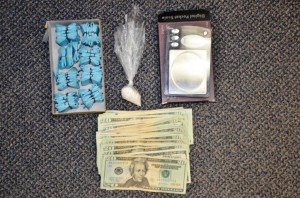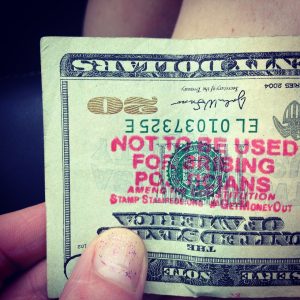 The U.S. Attorney’s Office for the Northern District of New York recently announced indictments of ten individuals for their roles in an East Coast heroin trafficking ring. Three of the defendants hail from Annapolis, which officials allege is where the heroin began the journey to its final destination in Schenectady, NY. After arriving in this suburb of Albany various New York based co-conspirators allegedly packaged the drugs and sold them in the Plattsburgh area, just a few hours drive from the Canadian border. The defendants vary in age, but each is under 35, and one was actually a state corrections officer until his arrest back in June. The three Maryland based defendants are all under the age of 30, with the youngest being just 19. This teenage defendant now faces between 5 and 40 years in federal prison, with the 5-year number representing the minimum mandatory sentence that must be imposed should he be convicted.
The U.S. Attorney’s Office for the Northern District of New York recently announced indictments of ten individuals for their roles in an East Coast heroin trafficking ring. Three of the defendants hail from Annapolis, which officials allege is where the heroin began the journey to its final destination in Schenectady, NY. After arriving in this suburb of Albany various New York based co-conspirators allegedly packaged the drugs and sold them in the Plattsburgh area, just a few hours drive from the Canadian border. The defendants vary in age, but each is under 35, and one was actually a state corrections officer until his arrest back in June. The three Maryland based defendants are all under the age of 30, with the youngest being just 19. This teenage defendant now faces between 5 and 40 years in federal prison, with the 5-year number representing the minimum mandatory sentence that must be imposed should he be convicted.
The other local co-conspirators include a 24-year old male who is facing a drug trafficking sentence of 10 years to life, and a 28-year old female who is facing up to 20 years for conspiracy to distribute narcotics. The 24-year old defendant is no stranger to the Maryland state judicial system, as he pled guilty to CDS possession with intent to distribute in Anne Arundel County back in 2012. His probation was violated shortly thereafter and an 18-month jail sentence followed. In addition to the federal indictment, the 24-year old is also set for an August trial date in Annapolis for numerous drug charges stemming from two separate state court cases. These charges are all drug related, and include distribution of narcotics and CDS possession of a large amount. The other Annapolis based defendants have relatively minor criminal records, which include two cases where each charged the other for assault. Prosecutors will likely end up dropping these cases, as the pair could assert their mutual 5th Amendment rights and choose not to testify. Regardless of what happens in these assault cases the defendants clearly have bigger issues to deal with up north.
The announcement by the Northern District of New York that a large heroin trafficking ring originated right here in Anne Arundel County came just as the governor announced 2018 allotments for the emergency opioid abuse funds. Last year the governor pledged $50 million to battle the record breaking heroin and fentanyl overdoses, and the money will be dispersed over the course of 5 years to various state and local agencies. The majority of the cash next year is going to inpatient treatment programs, naloxone supplies, public awareness platforms for opioid abuse and law enforcement efforts to dismantle drug trafficking rings. Baltimore City has been hit especially hard by drug overdoses, and the state has responded by allocating $2 million for a city crisis center. The Blog will continue to monitor this federal case and other state cases related to drug trafficking. We anticipate more drug busts making news headlines in the coming months as law enforcement agencies will be eager to show the governor the funding is being put to good use. However, it remains to be seen whether the emergency funding will begin to reverse the overdose numbers that are sadly trending in the wrong direction.
 Criminal Defense Lawyer Blog
Criminal Defense Lawyer Blog








